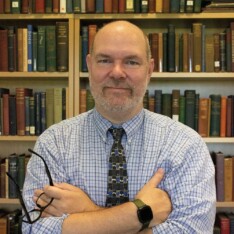Enterprise Perseveres Through the Crisis

Hardship can bring out truly extraordinary abilities in people. Director James Cameron wrote The Terminator while living in his car, a movie that would later make $77 million worldwide. Arianna Huffington became a well-known writer and founded HuffPost despite her second book being rejected by 36 publishers. Steve Jobs founded the massively successful Pixar Animation Studios after being forced out of his post at Apple.
Their trials were atypical, but due to the broad economic trauma brought on by Covid-19 and government-imposed lockdowns, a vast portion of the population will be similarly forced to forge a new path forward. Thankfully, there are already signs that many Americans are turning to innovation and entrepreneurship despite the devastation of the past 12 months.
Even faced with a monumentally bad economy, Americans are starting more businesses than ever before. From July to September 2020, the Census Bureau recorded 1,500,000 business applications, compared to a quarterly average of around 800,000. Etsy shops are buzzing, with 80 million active product listings now on the site––a 20 percent increase from last year. Online retail has been the fastest-moving sector for small business creation, with ample opportunities in residential remodeling, education technology, and virtual health care.
History tells us that one, a dozen, or a hundred of those businesses could become household names as they grow. General Electric, which had the longest listing in the Dow Jones Industrial Average since the index’s establishment (1896 to 2018), was started during the Panic of 1873. Revlon, a drugstore cosmetics staple, was founded during the Great Depression and eventually became the second-largest cosmetics producer in the U.S. During the 1973-1975 recession, Bill Gates and Paul Allen were hard at work launching Microsoft from a garage. Github, Airbnb, Slack, Uber, WhatsApp, and Venmo were all founded during the Great Recession.
Though few business owners, consumers, and potential entrepreneurs would choose to endure another round of lockdowns, they’ve all been forced to consider clever solutions to novel problems. Indeed, lockdowns have made us reconsider what work itself looks like. The current state of employment is location-flexible and remote-friendly, and with an abundance of Americans out of a job, small businesses have access to an applicant pool ready to get back to work. An ability to roll with those changes is critical.
That flexibility allows innovators and entrepreneurs to identify needs that are unfilled and markets that are unexplored. The winds of change don’t steer these people off course, but rather, they point them to new and lucrative opportunities. Every groundbreaking product and service, every improvement to familiar products and services, and often the means by which we first notice and acquire them come about thanks to commercial visionaries. And although they tend to appear as if out of thin air, at times their productive output comes to fruition under intimidating personal circumstances.
Innovation is further driven by the natural curiosity that many people possess. Faced with challenges within their communities and disruptions of the largest scale, there will always be problem-solvers looking to offer solutions. These days they aren’t so much mechanical, tinker-in-a-garage types, but never-before-seen technological minds who process the world in ways that don’t come naturally to many. They pay attention to the details that most of us miss. Those who are naturally curious––but were previously limited by more traditional desk jobs where they had few opportunities for creativity––may now be taking the plunge and exploring their abilities. And part of their value stems from the fact that they remain productive despite, and perhaps even because of, stress.
And, it goes without saying: Perseverance is key. For the same reason that a suspiciously high number of people think they’re excellent drivers (a claim that annual statistics do not validate), most individuals think they have perseverance until they find themselves in a trying situation. Those who truly know how to persevere will be rewarded for their efforts during these chaotic times. Plenty of people will, understandably, choose less risky endeavors. But withstanding adverse conditions, first and foremost, requires acknowledging that quitting is simply not an option.
Finally, even though it’s impossible to fully prepare for all that could go wrong, successful innovators take lessons from “preppers” nonetheless. Many preppers––often in an all-consuming manner––go to great lengths to acquire supplies in anticipation of natural disasters, civil unrest, or other existential threats. In a more subtle way, entrepreneurs go to great lengths to stay psychologically flexible, attuned to the ways the business environment might go wrong. Disaster might hit at any time in any number of ways. The problem-solvers who will emerge most triumphantly from these dark times will be the ones who stayed flexible and kept their ears to the ground.
Hundreds of thousands of businesses are being started. Many will fail, some will thrive, and a scant few will be wildly successful. To this end, we propose the following: Five years from now, there will be at least one S&P 500 index member that was founded during the Covid-19 pandemic and associated lockdowns (say, between March 16 and December 31, 2020).
Under current definitions, that would mean that at least one firm which started within the most daunting, uncertain economic circumstances in 90 years will grow to a market capitalization of over $5 billion, will have reported positive earnings in recent quarters, and will likely employ tens of thousands of people (the current average headcount among S&P 500 firms is roughly 51,000).
We’re living through an age that will leave deep scars on every aspect of American society. The trauma might linger, but so will the efforts of the people who are presently choosing to innovate and persevere in the face of adversity. Though many of them are doing so in the shadows, there are entrepreneurs everywhere who are setting to work to solve the most pressing problems of our present and our future. The businesses those innovators introduce to the world will be all the more significant for the hurdles they surpassed.












